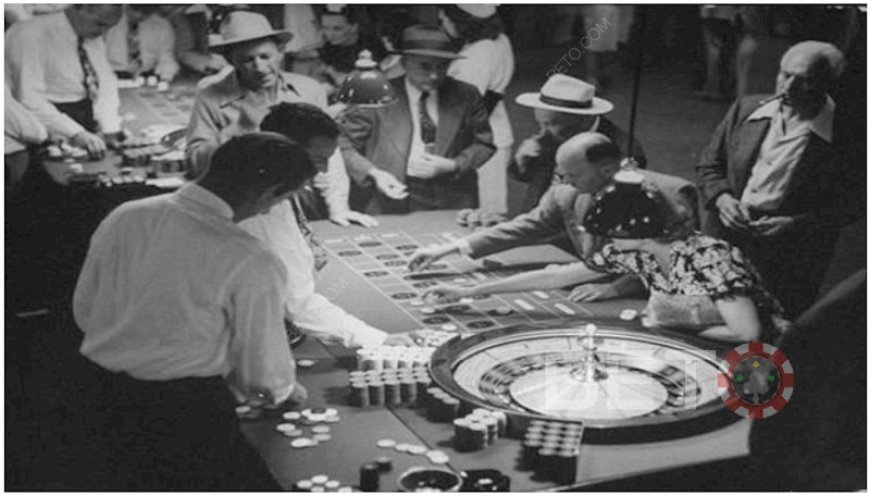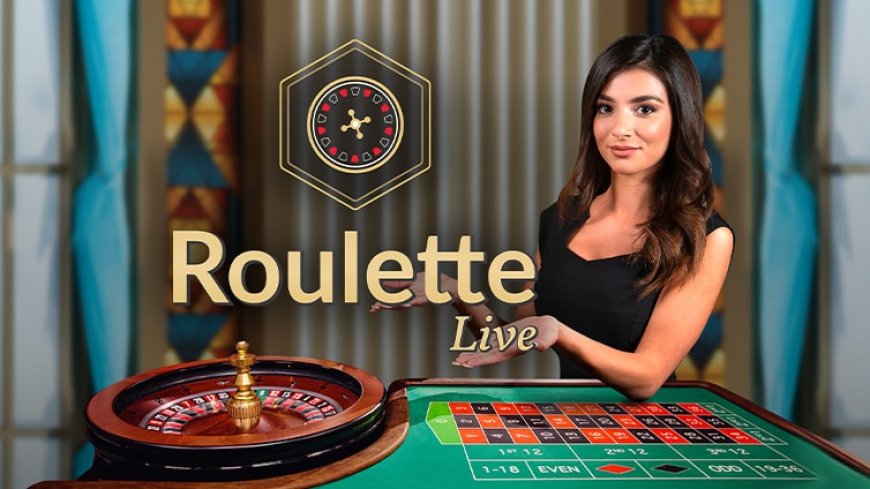Roulette is one of the most iconic and popular casino games in the world, captivating players for centuries. The spinning wheel, the bouncing ball, and the thrill of the bet create a unique experience. This article explores the history of roulette, its rules, variations, and some intriguing facts and strategies to help you better understand this legendary game.
The origins of roulette trace back to 17th-century France, and the game is often attributed to French mathematician Blaise Pascal. Pascal was working on a perpetual motion machine, and his experiments led to the creation of a wheel-like structure similar to the modern roulette wheel. While Pascal’s invention was not intended for gambling, its design later inspired the roulette game.
The modern version of roulette began to take shape in the 18th century. By the 1790s, Parisian casinos were offering an early form of the game, featuring the familiar red and black numbers and a single zero (0). The name “roulette” comes from the French word meaning “little wheel.”

In the 19th century, roulette spread across Europe and the Americas. During this time, two main variants emerged: European (or French) roulette with a single zero, and American roulette, which includes an additional double zero (00). The popularity of Monte Carlo’s casinos further elevated the game’s prestige, making roulette a symbol of wealth and elegance.
Roulette is a simple yet thrilling game based on chance. The objective is to predict where the ball will land on the spinning wheel. Here are the basic rules:
Wheel: The European roulette wheel has 37 pockets (0 to 36), while the American version has 38 (0, 00, 1-36). The numbers are not in sequential order, and the pockets alternate between red and black, except for the green zero(s).
Table: The roulette table features a betting grid where players place their chips on various betting options.
Placing Bets: Players place chips on the table, betting on a single number, a group of numbers, or other options, as prompted by the croupier (“Place your bets!”).
Spinning the Wheel: The croupier spins the wheel and releases a ball in the opposite direction of the spin.
Announcing the Result: When the ball settles in a pocket, the croupier announces the winning number and color. Winning bets are paid out, and losing bets are collected.
Roulette offers two main types of bets: inside and outside bets.
Straight Bet: Betting on a single number (e.g., 17). Payout: 35:1.
Split Bet: Betting on two adjacent numbers (e.g., 8 and 11). Payout: 17:1.
Street Bet: Betting on three numbers in a row (e.g., 7, 8, 9). Payout: 11:1.
Corner Bet: Betting on four adjacent numbers (e.g., 10, 11, 13, 14). Payout: 8:1.
Line Bet: Betting on two adjacent rows (e.g., 1-6). Payout: 5:1.
Red or Black: Betting on the color. Payout: 1:1.
Even or Odd: Betting on the parity of the number. Payout: 1:1.
Low or High: Betting on 1-18 or 19-36. Payout: 1:1.
Dozen: Betting on 1-12, 13-24, or 25-36. Payout: 2:1.
Column: Betting on one of the table’s columns. Payout: 2:1.
En Prison and La Partage: In European roulette, if the ball lands on zero, some casinos apply the “En Prison” rule, where outside bets are “imprisoned” and their fate is decided on the next spin. The “La Partage” rule returns half of the outside bets to the player.
There are several variations of roulette, each with slight differences:
European Roulette: Features a single zero, with a lower house edge (2.7%).
American Roulette: Includes a double zero, resulting in a higher house edge (5.26%).
French Roulette: Similar to European roulette but with special betting options (e.g., “call bets”) and the “En Prison”/“La Partage” rules.
Mini Roulette: A smaller wheel with only 13 numbers (0-12).
Multi-Wheel Roulette: Multiple wheels spin simultaneously, increasing the excitement.
While roulette is primarily a game of chance, many players use strategies to optimize their chances. However, no strategy guarantees a win, as the outcome is random.
Martingale: Doubling the bet after each loss to recover losses with the first win (e.g., 1 unit, then 2 units, then 4 units, etc.).
D’Alembert: Increasing the bet by one unit after a loss and decreasing it by one after a win.
Fibonacci: Betting based on the Fibonacci sequence (1, 1, 2, 3, 5, 8…).
James Bond Strategy: Distributing fixed bets across different options (e.g., 70% on high numbers, 25% on 13-18, 5% on zero).
Know the Rules: Understand the betting options and payout ratios.
Choose European Roulette: Its lower house edge offers better odds.
Manage Your Budget: Set a limit for how much you’re willing to risk and stick to it.
Avoid Risky Bets: Straight bets offer high payouts but have low odds of winning.

Sum of Numbers: The sum of the numbers on a European roulette wheel (1 to 36) is exactly 666, earning the game the nickname “the devil’s game.”
Monte Carlo Legend: In 1873, British engineer Joseph Jagger exploited a flaw in a Monte Carlo roulette wheel, winning a fortune before the casino noticed.
Online Roulette: In the digital age, online casinos offer live dealer roulette games, providing an authentic experience from home.
Roulette is more than just a game of chance; it’s a cultural icon that blends luck, strategy, and elegance. Its rich history and simple yet versatile rules have made it one of the most enduring casino games. Whether you’re a novice or a seasoned player, roulette offers excitement and entertainment for all. The next time you spin the wheel, remember: fortune may be fleeting, but the experience is always unforgettable!